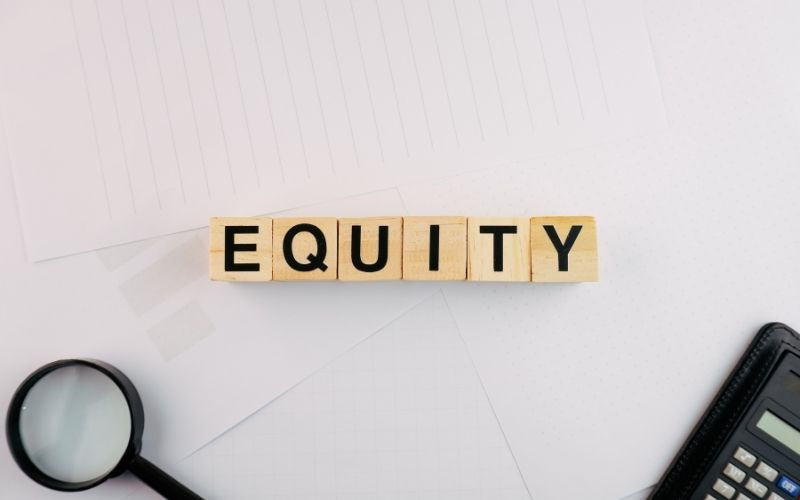How to Use Home Equity to Invest in Property in 2025
- Aug 13, 2025
- 4 min read
Updated: Aug 26, 2025
Thinking about buying an investment property, but feel like it’s out of reach? If you already own a home, you may be closer than you think. You might not need to save a massive cash deposit — instead, you could use the equity in your existing home to fund your next property purchase.

What is Home Equity and How Does it Work?
Equity is simply the difference between the current value of your home and the amount you still owe on your mortgage.
For example, if your property is worth $900,000 and your home loan is $500,000, you have $400,000 in equity. From there, most lenders allow you to access up to 80% of your property’s value — minus your existing loan. That could give you up to $220,000 in usable equity, which can be used to buy an investment property.
Still unclear? We’ve broken this down in our guide comparing renting vs buying in Australia, including a deeper explanation of how equity works and how you can unlock it without selling your home.
Why 2025 Is a Smart Time to Act
Property prices are rising — acting now lets you buy before prices go higher. Analysts forecast 3–6% annual growth through 2025, especially in outer metro areas like Perth, Brisbane, and regional Queensland
Rents are strong and vacancies are low, which boosts rental yields for investors leveraging equity
Lenders are actively competing on interest rates and cashback offers
Tax policy may change — smart structuring now protects your future returns
To explore the full market landscape, grab our latest download ➤ State of Play Report

How You Can Use Home Equity to Invest
There are several ways to structure a loan using your equity. Here are the three most common:
🔄 Top-Up Loan (Equity Release)
You increase your current home loan limit and release funds based on the equity you’ve built. These funds are paid into your account and can be used for your investment deposit and costs.
Pros | Cons |
Quick access to funds | Adds to your home loan debt |
No need for new accounts or lenders | Personal and investment debt are mixed |
Minimal paperwork | May limit tax deductions unless structured appropriately |
🔀 Split Loan (Two-Leg Structure)
You create a second loan facility in addition to your existing mortgage. One part remains for your home, and the second (funded by equity) is used for your investment property.
Pros | Cons |
Clear split between home and investment | Slightly more complex to set up |
Better for tax reporting and budgeting | May involve extra account management |
Keeps financial goals separate | Some lenders charge admin fees for splits |
🔀 Cross-Collateralisation
This strategy uses both your existing property and the new one as joint security for one or more loans. It can help you borrow more, but it comes with more restrictions.
Pros | Cons |
May allow higher borrowing | Limits your flexibility (e.g. refinancing or selling one property) |
No cash deposit required | Complex structure with more lender control |
Useful in portfolio-building strategies | Not ideal for long-term flexibility |
You don’t need to guess — you just need to chat to one of our experts ➤ Meet the Team

❓ Frequently Asked Questions (FAQ)
Q: How much equity do I need to buy an investment property?
Typically, you’ll need at least 20% usable equity to avoid paying Lenders Mortgage Insurance. That means if your current home is worth $800,000, and you owe $500,000, you may be able to access around $140,000.
Q: Can I use equity if I haven’t finished paying off my home loan?
Yes — as long as you meet the lender’s serviceability requirements, you can use available equity even if you still have years left on your home loan.
Q: Can I access equity with bad credit?
It’s harder, but not impossible. Some lenders offer options for borrowers with less-than-perfect credit, and we can help you create a plan to improve your eligibility. Start here ➤ Your Credit Score
Q: What loan types are best for using equity?
That depends on your strategy. We typically compare a top-up, a split loan, and cross-collateralisation — each has pros and cons, which we’ll walk you through based on your goals ➤ Investment Loan Services
DISCOVER MORE >
Exploring ways to leverage your equity?
With a smart strategy, the right loan structure, and expert guidance, using your home equity to invest can be a powerful way to build long-term wealth—without blowing the budget.
If you're ready to unlock your equity for your next investment—or just want a second opinion on your current loan setup—chat with one of our experienced brokers at My Finance Agent.
We're here to help you take the next step in your property journey with confidence.
Call us on (02) 8313-8400 or request a call back.







Comments